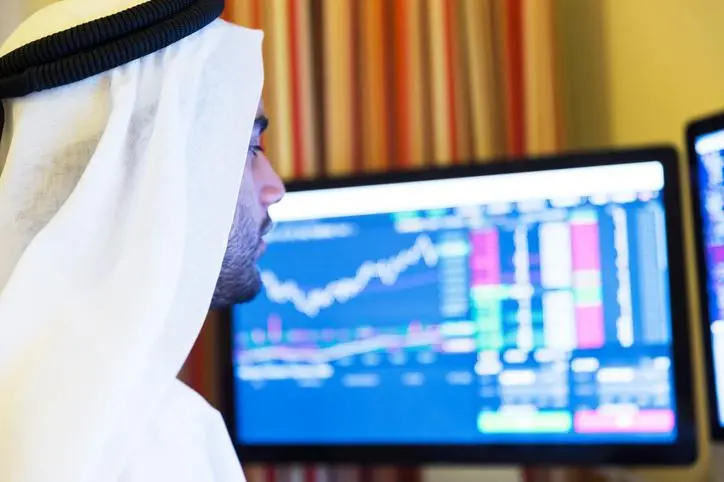PHOTO
Islamic economy and finance have become a critical component of the global economy, said experts at the recently-concluded Dubai Week in Africa 2021 virtual conference.
A unique virtual trade mission designed by the UAE Trade Centre from February 15 to 18, the Dubai Week in Africa 2021 hosted inspiring panel discussions on vibrant business segments like Export and Trade, Free zone & Investment, E-Commerce and Islamic Economy.
The event was attended by Dr Abdullah Belhaif Al Nuaimi, Cabinet Member and Minister of Climate Change and Environment; Peter Munya, Cabinet Secretary, Ministry of Agriculture, Livestock & Fisheries in Kenya; Abdulla Mohammed Al Awar, CEO, Dubai Islamic Economy Development Centre and Kiprono Kittony, Chairman, Nairobi Securities Exchange.
The last day of Dubai Week in Africa was a good chance for speakers to remind attendees of the business opportunities available in Islamic economy between the UAE on one hand and African countries on the other.
During the panel sessions it emerged how important Islamic finance products such as sukuk bonds have become to those seeking to raise capital in a post-pandemic global economy.
Munya said Kenya was seeing this as an opportunity, a partnership that could be strengthened focusing on agro-processing of products available in the country that are required in the UAE currently.
"The government has passed a cabinet memorandum allowing idle government land to be leased out to private investors who may want to invest in production, and Im told in UAE there are a lot of investors who are interested in that space," he noted.
According to Al Nuaimi, the UAE had ranked amongst the top Islamic economies in the world last year through in-depth expertise in the field, a robust trade infrastructure and initiatives such as Dubai Capital of Islamic Economy. The government aims to reinforce the UAEs position as a global hub for Islamic finance and trusted export partner for Halal products."
The guests explained the potential of Islamic economy in helping the global economy recover from the COVID pandemic by boosting Halal trade to improve food security.
"As we come out of the Covid-19 outbreak, we firmly believe the Islamic economy has the potential to drive global post pandemic economic recovery," he stated.
"A major opportunity in this regard is investing in halal food trade with the aim of enhancing national food security. Corona virus has highlighted the need for diversifying and boosting the international food supply chains to enhance uninterrupted availability of food at times of crisis," added Dr. Al Nuaimi.
Abdulla Mohammed Al Awar, CEO, Dubai Islamic Economy Development Centre, said: "What better way to end the week than to focus on the Islamic economy sector I personally believe that Sukuk holds a lot of potential especially when it comes to the post Covid-19 recovery plan for a lot of nations, weve seen some countries already announcing plans for this purpose."
"The Kenyan financial markets provide The UAE a great entry point to establish its economic presence in this region We signed an MoU with Nasdaq - Dubai to work together towards supporting the issuance of sukuk by the Kenyan government. Our regulator, the Capital Markets Authority of Kenya has prioritized this growth by supporting the reforming of the regulatory landscape to allow for the even treatment of Islamic and non-conventional finance," said Kittony.
Dubai continued to receive recognition as a future hub for business operations in post-pandemic environment where transport and logistics are limited.
Douraid Zaghouani, Chief Operating Officer, Investment Corporation of Dubai (ICD) said: "We have difficulty of movement today especially with the corona virus the idea is to create a hub/eco system where we have all the buyers and sellers from all around the world so if we could have a space where I can put my goods, present my capabilities in one place with a lot of people coming there, it would make a lot of sense because I will do one trip instead of 5 or 6."
Todays panel sessions featured vibrant discussions on the potential of Africa as a nexus for Halal trade and Islamic economy, noted Zaghouani.
"In Africa one of the interesting things is that over half of the countries in Africa are members of The Organization of Islamic Countries, so this brings a very good nexus of global halal trade on one hand and huge domestic consumption," added Dr Ashraf Mahate, Chief Economist Trade & Export Market Development, Dubai Exports who acted as moderator for one of the panel sessions.
Amina Ahmed Mohamed, CEO, Emirates International Accreditation Centre (EIAC), said: "Our vision as an accreditation body is to accredit once and have it be accepted everywhere where halal is recognized."
Copyright 2021 Al Hilal Publishing and Marketing Group Provided by SyndiGate Media Inc. (Syndigate.info).
Disclaimer: The content of this article is syndicated or provided to this website from an external third party provider. We are not responsible for, and do not control, such external websites, entities, applications or media publishers. The body of the text is provided on an as is and as available basis and has not been edited in any way. Neither we nor our affiliates guarantee the accuracy of or endorse the views or opinions expressed in this article. Read our full disclaimer policy here.





















